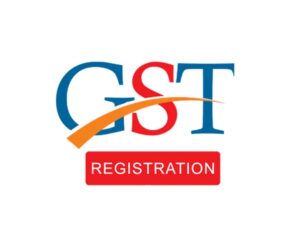
Is One GST Registration Possible for Different Businesses?
Introduction
Goods and Services Tax (GST) has revolutionized the taxation system in India, streamlining multiple indirect taxes into a single framework. Many entrepreneurs and business owners often wonder whether they need separate GST registrations for different businesses or if a single GST registration can cover all their ventures. Understanding the regulations around this is crucial to ensure compliance and optimize tax benefits.
Definition of GST Registration
GST registration is the process through which a business acquires a unique GST Identification Number (GSTIN) from the tax authorities. This number is essential for collecting and remitting GST, filing returns, and availing input tax credits. As per the GST laws in India, every business that exceeds the prescribed turnover threshold must register under GST.
Application of GST Registration for Different Businesses
GST law allows businesses to operate under one GST registration if they fall under the same legal entity and within the same state. However, if the businesses have different legal structures (such as sole proprietorship, partnership, or private limited company), separate GST registrations are required. Additionally, businesses operating in multiple states must obtain separate GST registrations for each state.
Situations Where One GST Registration is Possible:
- Multiple Business Verticals Under One Entity: If a company operates different types of businesses but under the same PAN (Permanent Account Number) and within the same state, a single GST registration can be used.
- Branches in the Same State: Different branches or divisions of the same business within a state can operate under one GST registration.
- Optional Separate GST Registration: A business can voluntarily opt for separate GST registrations for different verticals, but it is not mandatory.
Benefits of a Single GST Registration for Different Businesses
- Simplified Compliance: A single GST registration reduces the burden of maintaining multiple GST accounts and filing multiple returns.
- Cost Efficiency: Fewer administrative expenses related to GST registration, compliance, and audits.
- Unified Tax Credits: Easier management of Input Tax Credit (ITC) across business operations.
- Operational Convenience: Businesses operating within the same state can streamline processes without additional GST formalities.
Limitations of Using One GST Registration for Different Businesses
- Limited Scope: Different legal entities cannot operate under the same GST registration.
- State-Wise Restrictions: A separate GST registration is required for businesses operating in multiple states.
- Tax Compliance Complexity: Businesses with distinct verticals may find it challenging to manage tax liabilities under a single GSTIN.
- Risk of Higher Penalties: Incorrect classification of sales or tax obligations across businesses can lead to penalties and audits.
Comparative Table: Single vs. Multiple GST Registrations
| Aspect | Single GST Registration | Multiple GST Registrations |
|---|---|---|
| Legal Entity Requirement | Same entity, same PAN | Different entities or states |
| Business Verticals | Allowed if under one entity | Separate for distinct verticals |
| Compliance Burden | Lower | Higher |
| Tax Credits Management | Unified | Separate |
| Operational Flexibility | Easier | More control over different businesses |
| Cost Efficiency | Higher cost savings | Additional expenses |
Conclusion
Whether a business should opt for a single GST registration or multiple depends on its structure, location, and operational needs. Businesses operating under the same legal entity and within the same state can benefit from a single GST registration, simplifying compliance and reducing costs. However, those with multiple legal entities or operating across different states must obtain separate GST registrations to remain compliant with GST laws. Carefully evaluating business needs and consulting with tax professionals can help make an informed decision.
Frequently Asked Questions (FAQs)
Can I run multiple businesses under one GST registration?
Yes, if the businesses operate under the same legal entity and within the same state.
Do I need separate GST registrations for different business types?
No, unless they are legally separate entities or in different states.
What happens if I don’t register a separate business under GST?
It may lead to non-compliance issues, penalties, and loss of input tax credit.
Can a company have more than one GST registration in a state?
Yes, if the business has different verticals and opts for separate registrations.
Is separate GST registration mandatory for branches in different states?
Yes, GST registration is state-specific, and businesses must register separately for each state.
Can a sole proprietor have multiple GST registrations?
Only if the businesses are in different states or operate as separate entities.
How can I apply for a GST registration for multiple businesses?
You can apply online through the GST portal by providing relevant business details and documents.
Does separate GST registration affect input tax credit?
Yes, ITC must be managed separately for each GSTIN.
Can I transfer goods between my businesses under one GST registration?
Yes, intra-state transfers under the same GSTIN do not attract GST.
What are the penalties for incorrect GST registration?
Businesses may face fines, penalties, and loss of tax benefits if they fail to comply with GST laws.
To visit:https://www.gst.gov.in/
For further details access our website https://vibrantfinserv.com/